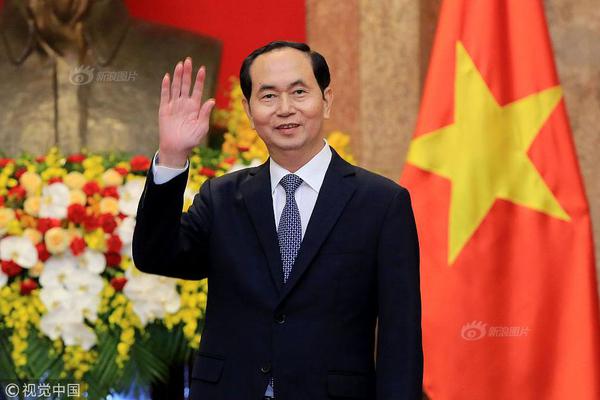Recently,Watch Mirror Twins Online Google removed its long-time unofficial motto, “don’t be evil,” from its corporate code of conduct. If you need an understanding as to why they’d make such an update, here’s the perfect example.
The Intercept is reporting that the company is readying a censored version of its search engine in a custom Android app to launch in China.
To comply with the Chinese government’s strict internet censorship laws, Google’s China-only search engine app would block websites and search terms about human rights, peaceful protests, political dissidents, democracy, police brutality, religion, and more.
SEE ALSO: 6 VPNs that can help you break through China's 'Great Firewall'A whistleblower provided the Intercept with the internal Google documents related to the project, codenamed “Dragonfly.” According to the leaked materials, the development of the censorship-friendly mobile search engine app began in the spring of last year. Work ramped up after Google CEO Sundar Pichai traveled to China to meet with Wang Huning, a top official in China’s ruling party. Following the meeting, Google announced an AI research center in Beijing and later released a file management app and sketch game for China’s growing internet-using population.
Once the app is completed, if Google believes the product excels China’s current leading search engine, Baidu, and it gets approved by China’s government, Dragonfly would be the U.S. search giant’s biggest step in the Chinese market.
Google will certainly be met with swift and immediate blowback from the public at large, as well as within its own company.
Now that the project has been leaked, Google will certainly be met with swift and immediate blowback from the public at large, as well as within its own company. According to the Intercept’s source, only a few hundred people had any knowledge of the Chinese search engine project. Google has more than 88,000 employees.
China’s internet censorship laws are well-known. The country’s entire internet is effectively “surrounded” by its Great Firewall of China, a joint effort by the state and tech and telecommunications companies to censor the web in accordance with Chinese law. For example, the country blocks information on the 1989 Tiananmen Square massacre. And Chinese technology companies must provide the government access to information on their users.
There is precedent to Google bowing to public pressure. Between 2006 and 2010, Google actually ran a censored version of its search engine in China. Facing heat from activists and even the U.S. government, Google eventually ended the product. In its announcement about pulling out of the country in March 2010, Google blamed the Chinese government’s censorship and surveillance policies as antithetical to what the company believes.
Since then, Chinese censorship and surveillance policies have only worsened, especially after China’s president Xi Jinping’s party took power in 2013. Google has also undergone changes as a company, with its new CEO Pichai leading the charge to once again get a foothold in the country.
But the story isn't over. Just this past June, after news broke that Google was partnering with the Defense Department to provide artificial intelligence for the government’s Project Maven drone program, thousands of employees voiced their disapproval. That employee rebellion forced the company’s hand in its decision not to renew its contract with the U.S. Department of Defense next year. A number of Google employees even went as far as resigning from the company in protest.
It'll be a bigger challenge to change Google’s mind about plans to re-enter the Chinese market. With an estimated 730 million internet users, China offers Google the potential to make far more money than did that contract with the Defense Department. And the new Google CEO seems to have made "Google in China" his mission.
Topics Google Politics
(Editor: {typename type="name"/})
 Your 'wrong person' texts may be linked to Myanmar warlord
Your 'wrong person' texts may be linked to Myanmar warlord
 Best Dyson deal: The Dyson Airwrap Long Complete is on sale for $459.99 at Best Buy
Best Dyson deal: The Dyson Airwrap Long Complete is on sale for $459.99 at Best Buy
 How to how to find your K
How to how to find your K
 Great Wall Motor launches Haval H6 in Mexico · TechNode
Great Wall Motor launches Haval H6 in Mexico · TechNode
 Best robot vacuum deal: Get the Roborock Q5 Max for 53% off at Amazon
Best robot vacuum deal: Get the Roborock Q5 Max for 53% off at Amazon
 Contraband
...[Details]
Contraband
...[Details]
Big tech firms restrict mobile apps under China’s new Internet regulations · TechNode
 Mobile app stores operated by Tencent, Xiaomi, and others have initiated restrictions preventing app
...[Details]
Mobile app stores operated by Tencent, Xiaomi, and others have initiated restrictions preventing app
...[Details]
Windows 11 Start menu ads arrive. How to turn them off.
 Sometimes it feels like everything is getting a little bit worse every day. This latest Windows 11 u
...[Details]
Sometimes it feels like everything is getting a little bit worse every day. This latest Windows 11 u
...[Details]
Dozens of cat mummies unearthed in ancient Egyptian tombs
 At an excavation of a pharaoh's 4,500-year-old pyramid complex, Egyptian archaeologists discovered d
...[Details]
At an excavation of a pharaoh's 4,500-year-old pyramid complex, Egyptian archaeologists discovered d
...[Details]
Best robot vacuum deal: Save $200 on Eufy X10 Pro Omni robot vacuum
 Save $200: As of May 16, the Eufy X10 Pro Omni robot vacuum is on sale for $699.99 at Amazon. That's
...[Details]
Save $200: As of May 16, the Eufy X10 Pro Omni robot vacuum is on sale for $699.99 at Amazon. That's
...[Details]
TSMC leads global wafer foundries in a sluggish Q2 · TechNode
 On Tuesday, market intelligence firm TrendForce released the list of the top ten wafer foundries in
...[Details]
On Tuesday, market intelligence firm TrendForce released the list of the top ten wafer foundries in
...[Details]
Huawei sues Portugal cybersecurity council over ban on 5G equipment supply · TechNode
 Chinese tech giant Huawei has filed a lawsuit in a Lisbon court against a resolution by Portugal’s c
...[Details]
Chinese tech giant Huawei has filed a lawsuit in a Lisbon court against a resolution by Portugal’s c
...[Details]
Chinese auto chip maker GTA Semiconductor raises over $1.8 billion · TechNode
 Chinese automotive chip manufacturer GTA Semiconductor has recently completed a financing round of R
...[Details]
Chinese automotive chip manufacturer GTA Semiconductor has recently completed a financing round of R
...[Details]
5 Ways to Access a Locked Windows Account
Big tech firms in China collaborate on addressing AI security concerns · TechNode
 Several big tech firms in China will collectively work on security concerns related to the rise of a
...[Details]
Several big tech firms in China will collectively work on security concerns related to the rise of a
...[Details]
AMD Radeon RX 550 + Intel Pentium G4560
TikTok ban likely to take down CapCut, Lemon8, and other ByteDance apps too

接受PR>=1、BR>=1,流量相当,内容相关类链接。